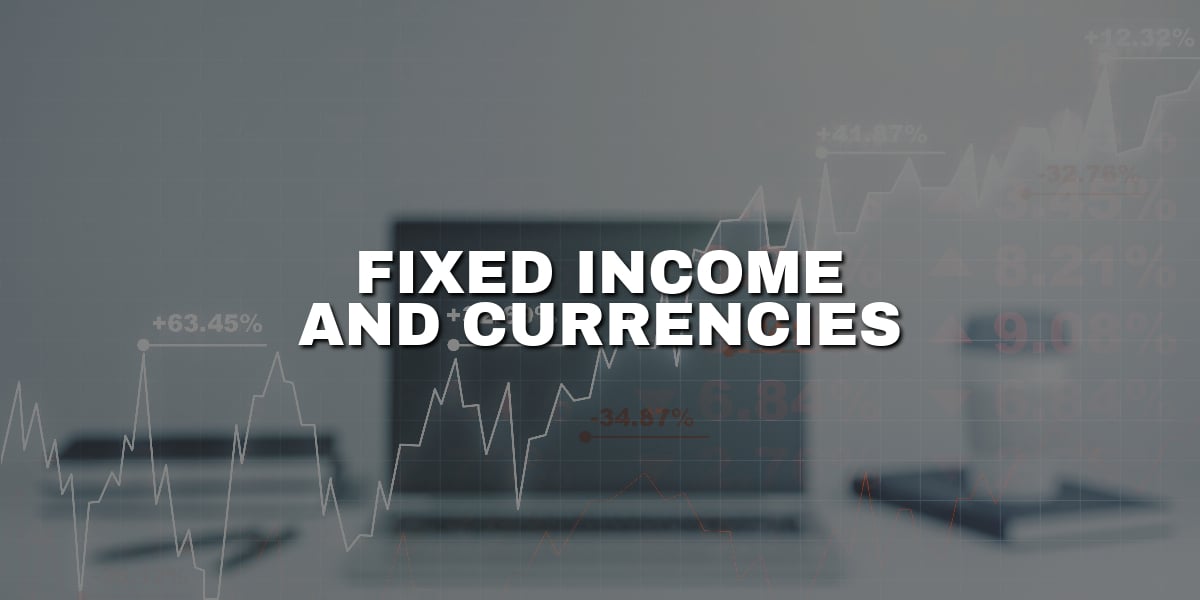What are fixed income and currencies, and how to use them?
Key Takeaways
Fixed Income and Currencies: Fixed income investments, such as Treasury bills, provide stable income over 30 years. They offer lower volatility compared to stocks. In forex trading, understanding exchange rates involving the base currency is crucial when deciding whether to buy or sell.
Diverse Choices: Investors have a range of fixed income options to choose from, each with different credit and currency risks. These options include Treasury bills and other bonds.
Considerations: When evaluating fixed income investments, it’s essential to analyze factors like risk, return, creditworthiness, periodic payments, and specific bond features. This analysis will help you make informed decisions about buying or selling these assets.
Have you ever thought about what fixed income and currencies are about? Why is it essential to understand them and how they function in the foreign exchange (Forex) market?
If you are into currency fluctuations, various currency pairs, interest rates and much more and want to make a living, you’re in the right place! Financial markets, like the Foreign exchange market, have been unpredictable and changing in recent months and years.
To make more money in Forex, learn about “fixed income and currencies” in the foreign exchange market.
So, as a newbie in this field or a semi-professional, let’s get the basics.
Get to know the meaning of fixed income meaning.
Fixed income is when you invest in securities that pay a fixed interest or dividends until they mature. Once these particular investments mature, investors receive their initial principal amount.
The prevailing fixed-income products primarily consist of government and corporate bonds. Unlike stocks, fixed-income securities provide consistent, predetermined payments to investors instead of irregular cash distributions.
Assets with variable income have payments that change depending on factors like short-term interest rates.
Various factors influence these payments.
Various factors influence these payments, including central bank policies, credit ratings, and the prevailing yield curve. The coupon rate on the bond is important in deciding the payments because it is the fixed interest rate.
Investors can buy fixed-income securities directly or invest in fixed-income ETFs and mutual funds.
Treasury Notes: A Secure Fixed-Income Investment
Companies and governments borrow money by issuing debt securities like Treasury notes to fund their operations and big projects. These fixed-income instruments offer investors a set interest rate return in exchange for lending their money.
At the maturity date, the principal, which is the original amount invested by investors, is repaid to them. Treasury notes, in particular, represent a secure fixed-income investment option within this broader spectrum of debt securities.
Let’s dive deeper into fixed-income basics and market dynamics in the latest months, shall we?
Fixed-Income Basics
Financial institutions and governments issue bonds to secure funding for various purposes. These bonds come with a fixed interest rate, a coupon rate, and a specified maturity date.
Investors buy bonds and get regular interest payments, known as coupon payments, usually yearly, twice a year, or quarterly. At maturity, investors are repaid the initial principal amount they invested.
Market Dynamics
The prices of these bonds can fluctuate due to certain changes in supply and demand in the bond markets.
Investors can trade bonds before they mature, and their prices are affected by secondary market conditions and interest rates. This dynamic environment offers opportunities for investors to manage their fixed-income portfolios effectively.
What are currencies exactly?
Believe it or not, many people still do not know how to define currencies. According to the universal definition of it, currency represents the official money used in a place.
Well-known currencies include the U.S. dollar ($), euro (€), Japanese yen (¥), British pound (£), and Swiss franc. These symbols represent different currencies.
What is the meaning of “currency” in the context of forex?
Currency refers to any money that is widely used within a country. It can also refer to money in a different currency, like the euro, or from multiple countries.
In forex, it’s crucial to understand the exchange rate at which the market converts one currency into another. The base currency is the initial currency listed in a forex quote, while the second is the quote currency or counter currency.
Forex quotes show currency pairs, like EUR/USD, with the base currency followed by the quote currency.
Diverse Fixed Income and Currency Choices
Investors have various options in fixed income and currencies, each with different credit risk levels:
U.S. Treasury Securities are secure investments supported by the U.S. government and in U.S. currency, minimizing risks.
Municipal Bonds: Credit risk depends on the issuing municipality’s financial health. Currency exposure may vary for international investors.
Corporate bonds have varying credit and currency risks based on the company and the currency they are issued.
High-yield bonds have more credit and currency risks due to possible issuer default being issued in foreign currencies.
Certificates of Deposit (CDs): Typically have low credit risk and can be issued in various currencies, affecting currency risk.
Investors should consider credit risk, particularly with corporate or high-yield bonds. They should also exercise caution regarding currency exposure when dealing with foreign currencies.
Simplified Guide to Fixed Income Investing
When adding fixed-income securities to your investment portfolio:
Direct Bond Investment: Many brokers offer access to bond markets, including Treasuries, corporate, and municipal bonds.
Bond funds are mutual funds that invest in different bonds managed by professionals to generate a stable income.
Fixed-Income ETFs: Like mutual funds but more accessible and cost-effective for individual investors, with options targeting specific factors and management expenses.
Fixed-income investments are typically conservative, generating returns from low-risk securities offering predictable interest. Building a fixed-income portfolio may include bonds, bond funds, and certificates of deposit (CDs). A popular strategy is the laddering approach.
Laddering for Steady Returns
The laddering strategy involves investing in short-term bonds to create a consistent income. As bonds mature, reinvest the principal in new short-term bonds, extending the ladder. This approach provides liquidity and the chance to benefit from rising interest rates.
For instance, with a $60,000 investment, divide it into one-year, two-year, and three-year bonds. Each year, reinvest the matured bond’s principal in a new bond, extending the ladder. This strategy offers stability and flexibility.
Advantages of Fixed Income Investments
Income Generation: Fixed income provides a reliable income stream suitable for retirement portfolios.
Reduced Volatility: It stabilizes investment portfolios, offsetting potential stock market losses.
Guarantees: Certain fixed-income products, like Treasury bonds and CDs, come with government-backed guarantees.
Risks Associated with Fixed Income
While fixed income has benefits, consider these risks:
Credit and default risk: Bonds can have credit risk if companies have financial difficulties, leading to lower prices.
Higher interest rates can cause bond values to drop, especially if fixed rates are no longer competitive.
Inflationary Risks: Fixed returns may lose purchasing power if inflation rises.
Pros and Cons of Fixed Income
Let’s learn about the main pros and cons of the fixed income!
Pros
Reliable income stream
Lower volatility than stocks
Priority claim in bankruptcies
Government and FDIC backing for some products.
Cons:
Typically lower returns than other investments
Exposure to credit and default risk
Vulnerable to interest rate risk
Sensitive to inflationary risk.
Fixed Income Analysis: Key Considerations
When evaluating fixed-income investments:
Risk vs. Return: Assess risk tolerance and consider whether returns justify the associated risk.
Creditworthiness: Evaluate issuer creditworthiness, bond duration, and industry.
Periodic Payments: Some fixed-income securities offer periodic payments, reducing overall risk.
Bond Features: Different bonds have varying features affecting yields, such as callable bonds or conversion to common stock.
Analyze these factors carefully to make informed decisions when investing in fixed income.
Bottom line
Fixed-income investments offer stability and income generation but come with their own set of risks. Understanding currencies is essential for navigating the forex market effectively. Diversification and careful analysis are key to successful fixed-income investing.
The post What are fixed income and currencies and how to use them? appeared first on FinanceBrokerage.


































